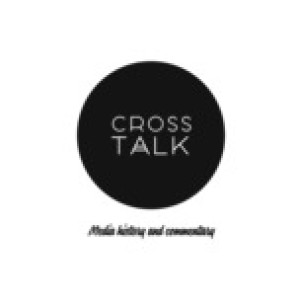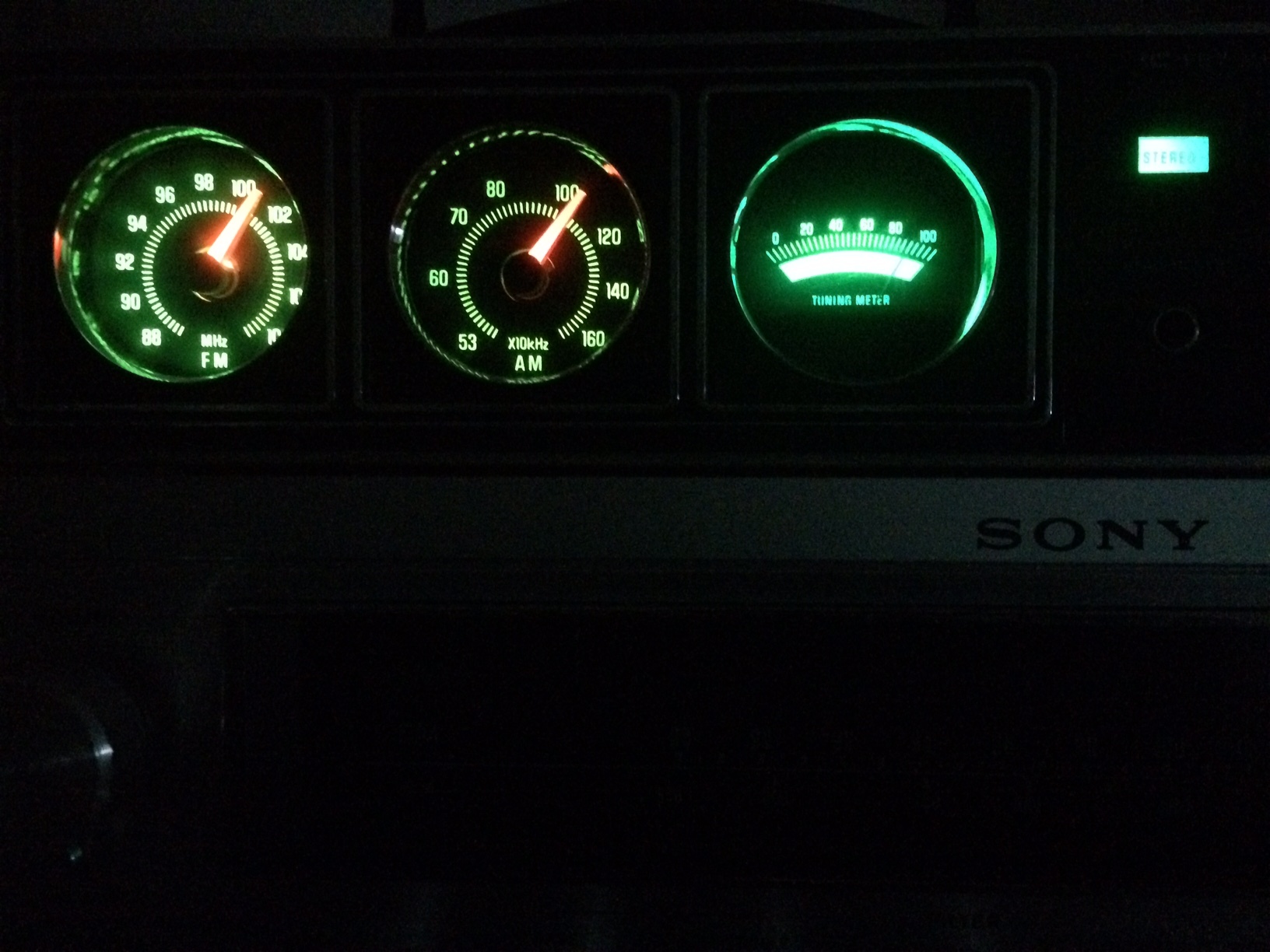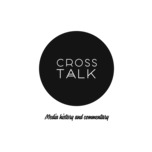Episodes

Friday Jul 10, 2020
Friday Jul 10, 2020
Unscripted, live-to-tape commentary moments after the conclusion of a news conference carried live on Newsradio 930 WBEN in Buffalo New York, received over the air in Toronto. The statue of Columbus in Buffalo is being taken down and moved; not in any attempt at dialogue for the times in which we live, but in order to preserve it and replace it with something else celebrating one community in that city. I wonder how the mayor really feels about it, and about his role in the situation.

Friday May 15, 2020
Cross Talk: Season Four, Episode 17
Friday May 15, 2020
Friday May 15, 2020
"Thank you, Radio." From May 15, 2020. Radio stations around the world have been providing more than the latest news during the Covid-19 pandemic. Many are performing at their peak, under difficult circumstances, in trying times. Several recent episodes have highlighted and examined various aspects of local radio's response to the crisis -- notably, episodes 14, 13, 11 and 10. Today...to end this season...I'm saying "Thank you, Radio."
For educational purposes. Makes fair use of bits of audio from Newstalk 1010 Toronto, a spot produced for Sleep Country Canada, and audio provided by CJRT JazzFM Toronto.
Final episode of Season Four; there are now 60 episodes in total.

Friday May 08, 2020
Cross Talk: Season Four, Episode 16
Friday May 08, 2020
Friday May 08, 2020
"On toxic talk radio." From May 7, 2020. In Season 4, Episode Two I raise the concept of "toxic" talk radio; radio that is extreme in its philosophy and hostile toward people with differing approaches and opinions. The talk radio we have in Canada is mild by comparison; even the politically right-wing talk shows here pale by comparison to the extremism typical in the examples given in this episode. Some radio and communications students have heard of some of the hosts sampled here; many have heard, or heard of, none. Everyone in radio and mass communication should have some awareness. These hosts are powerful; they influence opinion and actions. Makes fair use of samples from the Mark Levin show, Savage Nation with Michael Savage, and the Rush Limbaugh show. For educational purposes.

Thursday Apr 30, 2020
Cross Talk: Season Four, Episode 15
Thursday Apr 30, 2020
Thursday Apr 30, 2020
"On the failure to warn the public" From April 30, 2020. The RCMP in Nova Scotia chose to use Twitter to warn residents in an isolated rural area to stay inside and lock their doors when they were called to the scene of murders and arson on a Saturday night in April. It was another eight hours or so before they felt a second tweet was warranted; after a witness came forward and told them the man they were looking for was dressed as a cop, and driving a replica cruiser. What unfolded overnight and through Sunday morning became the worst mass murder in Canadian history. It didn't take long for radio and tv stations to wonder why the RCMP had not issued an "emergency alert" to warn the public. But someone should also be asking...how did radio and tv miss the story for so many hours? They could have had the story on the air late Saturday night. But they missed it.

Thursday Apr 23, 2020
Cross Talk: Season Four, Episode 14
Thursday Apr 23, 2020
Thursday Apr 23, 2020
"How Radio adapts in the Time of the Pandemic" - from April 17, 2020. Continuing my examination of radio's response to the Covid-19 pandemic in 2020. Previous episodes include reference to special programming, and to radio hosts performing from home. In this episode, a former talk show host -- the current mayor of Toronto -- returns to the air to host a one-time call-in show; and two morning co-hosts share their story of adjusting to broadcasting from their basements at home. Makes fair use of audio from Newstalk 1010 Toronto. Thank you to Samantha Houston and Neil Hedley of AM740 CFMZ Zoomer Radio in Toronto for responding to my request for their participation by recording together and sharing their stories.

Thursday Apr 09, 2020
Cross Talk: Season Four, Episode 13
Thursday Apr 09, 2020
Thursday Apr 09, 2020
What if Radio was not there? From April 8, 2020. What if you turned on the radio and there was...nothing there? Unthinkable. In the time of the covid-19 pandemic, local radio is doing more and more to keep listeners informed, entertained and comforted. No other form of media is going to talk about radio the way radio is talking about them. But it's been that way for a long time. Me? I love to talk about Radio. Here we go.
No use of audio this time. Because what if...there was nothing there?

Friday Apr 03, 2020
Cross Talk: Season Four, Episode 12
Friday Apr 03, 2020
Friday Apr 03, 2020
"On how it took a crisis to make government communication more accessible in Canada.” From April 2, 2020. In the daily public briefings about the covid-19 held by government and public health authorities in the city of Toronto, the province of Ontario, and the federal government of Canada, a sign language interpreter is participating. They should have been routinely included in public announcements and briefings for many years now; perhaps decades. But their appearance has been unusual. Until now. It seems it has taken a real public health emergency to bring American Sign Language translation and interpretation into the strategic communications approach of public bodies in Canada. Sign language that fits use by local populations everywhere should be part of the communication. While we're thinking about this more "accessible" communication approach, let's also get rid of some nasty old discriminatory language, too.
Opens with audio from daily briefing by Ontario Premier Doug Ford, as he recognizes the work of ASL interpreter Christopher Desloges.
The full scripts of this episode -- and others, starting with Season Four Episode 10, are also available at https://paulcrossradio1.wordpress.com Beginning now, any audio embedded in the podcast is shown transcribed in the script on the Wordpress site.

Thursday Mar 26, 2020
Cross Talk: Season Four, Episode 11
Thursday Mar 26, 2020
Thursday Mar 26, 2020
"On listening to the news about government response to covid-19". From March 25, 2020. Commentary. This episode shifts toward the commentary spectrum as I react to updates I hear on the news, in order to demonstrate what constitutes commentary for radio in Canada. It's designed to fit with a course I teach in spring semester -- online now, during covid-19 -- in which radio news students will write and produce -- perform! -- a radio commentary as their final assignment. (I think they'll have a lot to say!) Based on Canadian laws that apply, this piece qualifies as fair comment, and meets all the other tests a radio commentary writer needs to consider. May be of use in courses in radio, news production, journalism, broadcasting, public relations, media studies, communication studies. Makes fair use of the opening sounder and first 20 seconds of CBC Radio 1 World Report from 8am March 25/20.
For an examination of radio commentary in Canada, please revisit Season One, Episode Nine.

Wednesday Mar 18, 2020
Cross Talk: Season Four, Episode Ten
Wednesday Mar 18, 2020
Wednesday Mar 18, 2020
"On local Radio in the time of covid-19". From March 17, 2020. In the midst of a pandemic of the covid-19 corona virus, most of what makes up "normal" activity for hundreds of millions of people is disrupted. Sports, late-night tv talk, restaurants, bars and theatres are closed. People still need routine. Radio can be a big part of that. While every news outlet in every form of media works extra-hard under difficult circumstances, Radio can continue to adapt and do even more. Some thoughts from my career in crisis-coverage in radio. While radio keeps up its daily routine, providing news, information, entertainment, comfort, and companionship...it should bring in more. Stephen Colbert and other late-night tv hosts should move to radio.
This is the first episode produced entirely at home; different software, and a few issues to work out. Just like radio.

Friday Mar 13, 2020
Cross Talk: Season Four, Episode Nine
Friday Mar 13, 2020
Friday Mar 13, 2020
"On Covid-19 in the News". From March 12, 2020. One could make the case that "everything changed" in the 24 hours connecting March 11th and 12th. Professional sports, concerts, public events, even tv talk shows started disappearing in the hours after the World Health Organization started describing the Covid-19 corona virus spread as a pandemic. Radio must remain and keep on doing what it does; we need that sense of carrying on. In this episode, a thumbnail sketch of some aspects of news coverage on radio and the atmosphere that had been created around coverage in North America by the actions of the U-S president. And some questions about news coverage in Canada -- including, why are broadcasters not reporting the federal health minister expects up to 70 per cent of the population could become infected? How did the national wire service not see that as a major development in the story? Makes fair dealing use of bits of broadcast audio from CFTR 680News, Newstalk1010 CFRB, BBC World Service, CBC Radio One.
Radio: Keep on doing what Radio does best. Students of Radio: Listen up! This is a unique opportunity to really examine what radio does in times of crisis.

